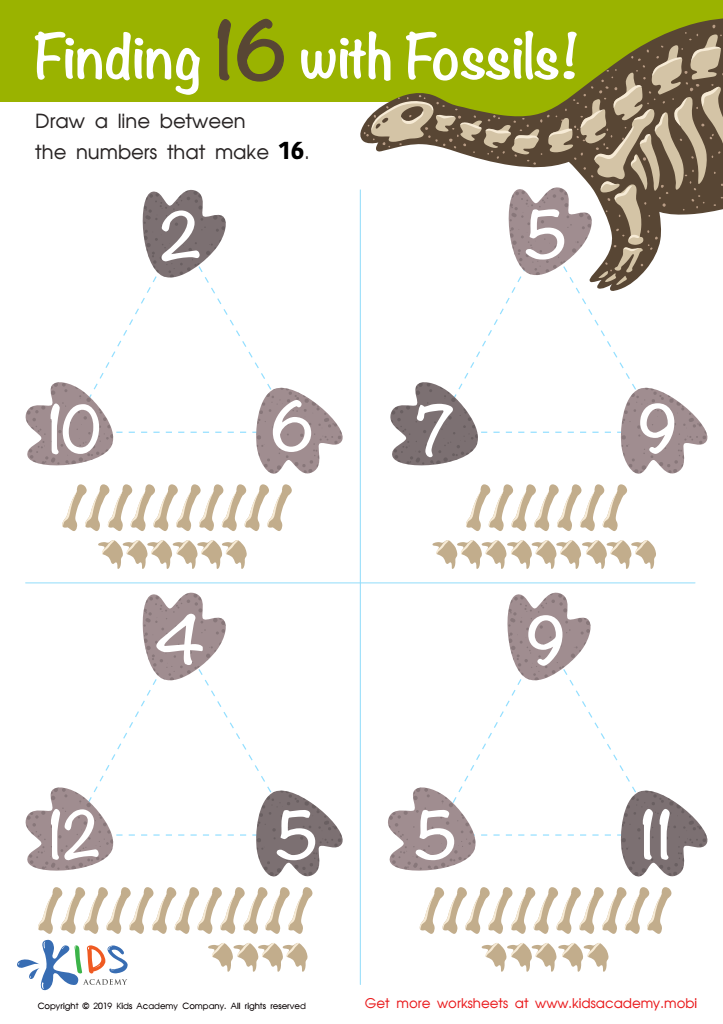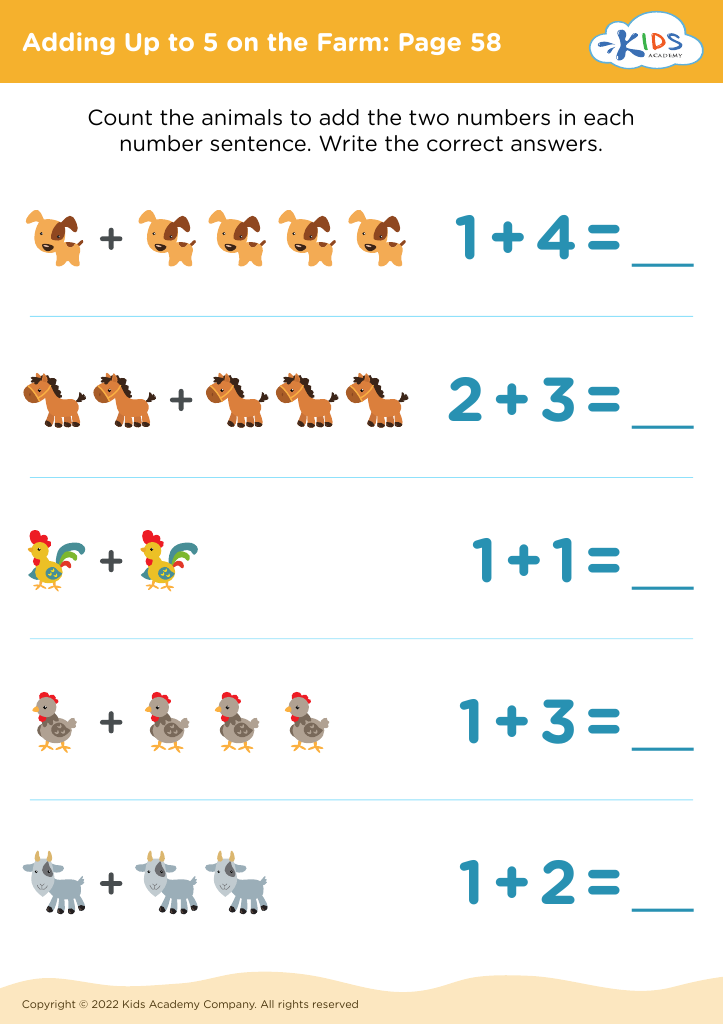Observation skills Math Worksheets for Ages 3-6
3 filtered results
-
From - To
Boost your child's learning journey with our engaging Observation Skills Math Worksheets, designed specifically for ages 3-6! These worksheets enhance critical thinking by encouraging young learners to observe, compare, and analyze various mathematical concepts. With fun and colorful activities, children will learn to identify patterns, categorize shapes, and solve simple problems while building a strong foundation in math. Our comprehensive resources also foster independence and confidence, making math enjoyable and accessible. Perfect for home or classroom use, these worksheets promise to nurture your child's observational prowess and prepare them for future success in mathematics. Explore our collection today!


The 5 Sense Scientist Worksheet


Finding 16 With Fossils Worksheet
Observation skills are crucial in mathematics for children aged 3-6 as they lay the foundation for critical thinking and problem-solving abilities. During these formative years, children learn to recognize patterns, shapes, and relationships in their environment through observation. These skills encourage curiosity and exploration, making math relatable and engaging.
For parents and teachers, nurturing observation skills can enhance children's mathematical understanding. Observational learning allows young learners to connect real-world experiences with mathematical concepts, such as counting objects in their surroundings or identifying geometric shapes in everyday items. This builds a strong conceptual base, promoting number sense and spatial awareness.
Additionally, observation skills foster collaboration and communication. Children learn to articulate their thought processes and findings, which strengthens their narrative and reasoning abilities. Moreover, honing these skills encourages children to ask questions and seek answers, creating a lifelong love for learning.
By prioritizing observation skills in early math education, parents and teachers can cultivate independent learners who are better equipped to tackle more complex mathematical challenges in the future. Investing time and effort into developing these skills can significantly impact a child's academic journey and overall confidence in their abilities.
 Assign to My Students
Assign to My Students






















